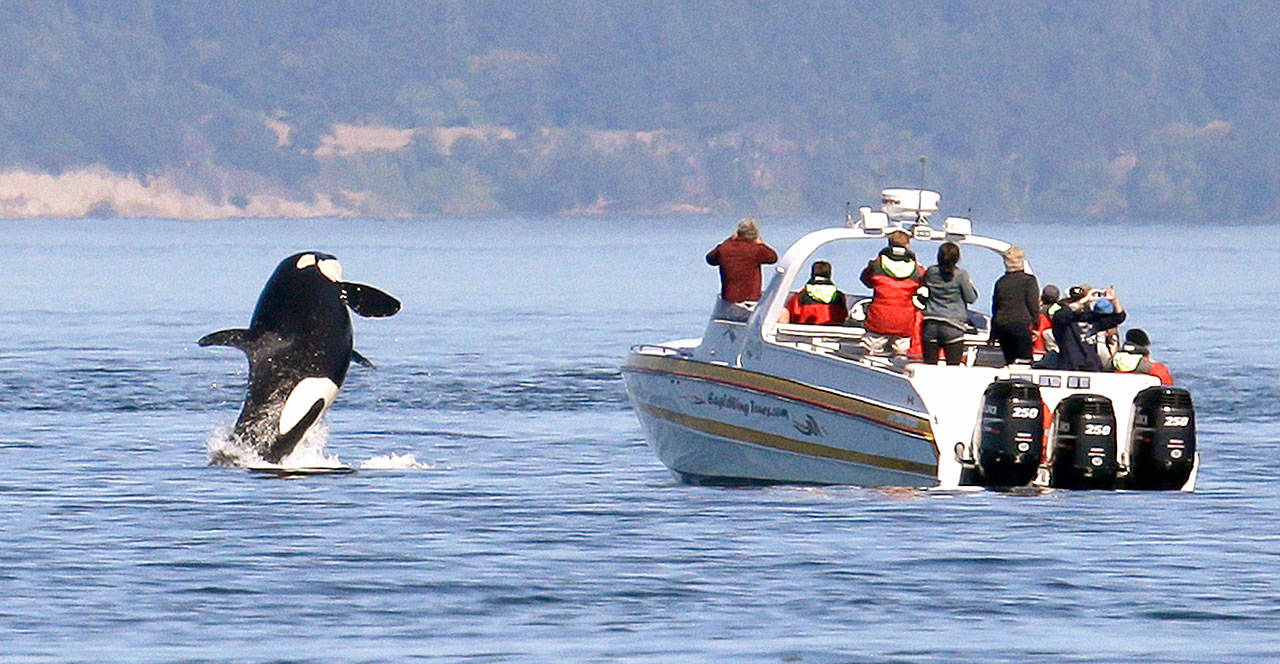SEATTLE — The state Department of Ecology faces the possibility of losing millions of dollars in federal money after a judge Tuesday declined to dismiss a lawsuit brought by an Oregon-based environmental group.
The lawsuit, by Northwest Environmental Advocates of Portland, Ore., is designed to force the state to do more to protect Puget Sound from pollution or risk losing more than $3.5 million per year in federal support.
The federal government is supposed to cut certain funding for states that don’t have an approved plan for protecting coastal waterways from pollution related to farming, logging and other activities. Cutting the funding — a punishment dictated by Congress — is supposed to pressure states to control the pollution.
According to the lawsuit, the Environmental Protection Agency and the National Oceanic and Atmospheric Administration haven’t approved Washington’s plan, but they keep giving the state money anyway. The state’s orcas, salmon and other species remain in peril.
“They keep talking about saving these species and protecting human health from pollution, but when push comes to shove, they’re not doing anything,” said Nina Bell, the group’s executive director.
“Our goal here is not to take money away from the Department of Ecology; it’s to use a tool Congress created to pressure them to do what they’re supposed to be doing: controlling the source of pollution.”
Such fixes include measures such as requiring farmers or loggers to leave enough vegetation on stream banks to keep eroded soil, pesticides or other pollutants from reaching the water, she said.
The federal government asked U.S. District Judge John C. Coughenour in Seattle to dismiss the case, on the grounds that Northwest Environmental Advocates lacked standing to sue, among other grounds. But the judge ruled Tuesday that most of the group’s claims can go forward.
The law, he said, is clear. The agencies haven’t approved the state’s program, while awarding more than $83 million through last year.
“On this basis, the agencies have failed to meet their statutory obligation,” he wrote.
Mark McIntyre, an EPA spokesman, said the agency is reviewing the decision.
A spokeswoman for the state Ecology Department, Jessie Payne, said the department is tracking the case and working to improve the state’s handling of such runoff — referred to as “nonpoint” pollution.
“We believe we have a good program, and have identified strategies for improving and strengthening our state’s nonpoint work — especially that associated with agriculture. EPA has been supportive of us moving forward.”
Northwest Environmental Advocates previously filed a similar lawsuit to block federal funding for Oregon. That eventually resulted in the state losing $1.2 million last year, and Oregon has made some improvements to its logging practices, Bell said.
Bell said Washington uses the money at issue to fund its pollution control program and to dole out grants for environmental work, such as paying for a farmer to put up a fence to keep cows out of a river. It might seem paradoxical for an environmental group to seek to deprive a state of such funding, but the state’s current approach is simply inadequate, she said.
“Obviously these projects, if they’re maintained, are good for the environment,” she said. “But if you put what they achieve against what needs to be done, it’s a drop in the bucket. We’ll give this guy some money, but everyone else keeps doing what they’re doing.”

